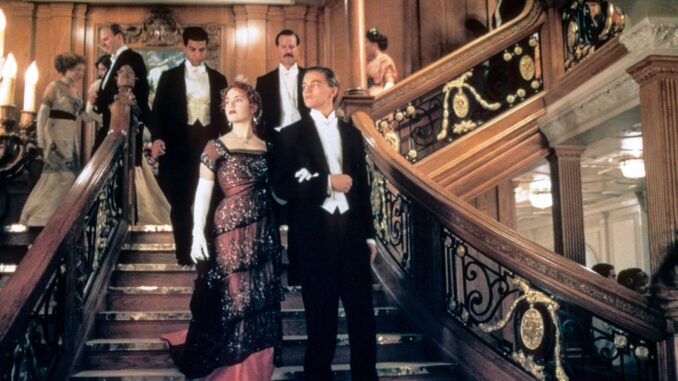
The year was 1997. A cinematic behemoth was rising on the horizon, destined to become an iceberg-sized phenomenon that would redefine box office records and launch careers into the stratosphere. James Cameron's Titanic wasn't just a movie; it was a cultural event, a global obsession, and the most coveted acting gig of its era. For an actor, securing a lead role in such a project was the equivalent of striking cinematic gold, a guaranteed ticket to eternal fame and unimaginable wealth. Yet, amidst the fervent auditions and the clamor for the role of Jack Dawson, one name, now synonymous with the profound and the peculiar, reportedly held back, not due to a lack of interest, but for a deeper, more internal "request": Matthew McConaughey.
The legend, often whispered in Hollywood corridors, is not that McConaughey literally slammed the door on Titanic in a fit of artistic pique. The narrative is more nuanced: he auditioned, he was considered, he was even reportedly the front-runner at one point. But in the grand tapestry of his career, the role of Jack ultimately went to Leonardo DiCaprio, paving the way for a different destiny for McConaughey. It wasn't a direct "no" to a script, but rather a profound, unspoken "request" to himself, a premonition of the kind of career he truly desired, even if it took years for that vision to coalesce. This "one request" was not a line item in a contract, nor a specific demand made to a studio head. It was the burgeoning, fundamental desire for authenticity, for control over his narrative, and for a creative path less traveled by the leading men of his generation.
To understand this "request," one must first appreciate the gravitational pull of Titanic. It promised unparalleled global recognition, the adoration of millions, and a comfortable perch atop the A-list. For any actor, especially one like McConaughey who was just beginning to establish himself with charismatic turns in films like A Time to Kill and Contact, the temptation must have been immense. He was handsome, charming, and possessed that effortless Texan cool. He was, by all accounts, perfect for the romantic lead. Accepting such a role would have cemented him as the quintessential Hollywood heartthrob, forever etched in the public consciousness as the dashing hero of the ill-fated liner.
But perhaps that was precisely the "request" he couldn't verbalize yet: the subtle dread of being perpetually typecast, of having his entire identity swallowed by one iconic role. Had he become Jack Dawson, the path that followed might have been entirely different. Instead of How to Lose a Guy in 10 Days or Failure to Launch – roles that would eventually lead to a self-imposed "rom-com sabbatical" – he might have been chasing grander, albeit equally typecasting, blockbusters. The "one request" was, perhaps, the intuitive recognition that the most obvious, most glittering prize might also be the most creatively limiting. It was a premonition that a life defined by a single, colossal success, however glorious, might stifle the deeper, more challenging artistic evolution he unknowingly craved.
The proof of this "request" unfolded years later, not in a single dramatic refusal, but in a gradual, deliberate shift that came to be known as the "McConaissance." After years of charming audiences in breezy romantic comedies, McConaughey hit a wall. He openly admitted to feeling creatively unfulfilled, tired of the easy laughs and predictable plotlines. It was then that the "request" became explicit: he consciously turned down more lucrative rom-com offers, choosing instead to wait, to be patient, to seek out roles that scared him, that demanded more than just a winning smile.
This self-imposed hiatus, this quiet refusal to simply "take the money," was the true embodiment of that unspoken "request" from the Titanic era. He emerged from it with a ravenous hunger for challenging material: the skeletal Ron Woodroof in Dallas Buyers Club, the nihilistic Rust Cohle in True Detective, the nuanced stripper Dallas in Magic Mike, the tormented detective in Mud, and the stoic Cooper in Interstellar. These were roles that demanded physical transformations, psychological depth, and a willingness to explore the darker, grittier corners of the human experience. They were antithetical to the dashing, uncomplicated hero of Titanic.
In essence, Matthew McConaughey "turned down" Titanic not with a single, dramatic rejection of the script, but by fostering an internal "request" for a career built on substance over spectacle, on authenticity over archetype. He chose the meandering path of artistic discovery, even if it meant enduring a period of typecasting and later, a professional wilderness. The ultimate irony is that by not being Jack Dawson, by consciously or unconsciously steering clear of that immediate, defining stardom, he was able to forge a career that is arguably more profound, more diverse, and more respected. His "one request" was for the freedom to be himself, to explore the full spectrum of his talent, and ultimately, to just keep livin'. And in doing so, he built a legacy far more complex and enduring than any single blockbuster could have provided.